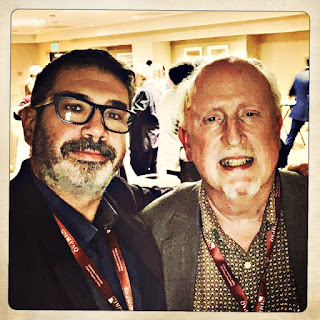Tom Palley wrote a short post on his recent experience with the Post Keynesian Economics Society (PKES). The post raises interesting issues about what constitutes an economic topic and where to draw the line between academic and non-academic work. A similar debate recently occurred on the listserv of the Union for Radical Political Economy (URPE) regarding an announcement about the Gaza conflict (specifically, whether it constituted genocide, whether URPE should have a statement on the topic, and so on).
On the two main topics of Tom's piece -- what constitutes an economic related topic, and what is an academic subject -- I should say that I tend to think that there are relatively clear answers (and my views might not be hegemonic, in this field; see what I did there?). I come from a political economy tradition, that harks back to classical political economy, according to which economics is about the material conditions for the reproduction of society, in which social classes, and the conflict between them are central not only for the determination of distribution, but also of the pace of accumulation and progress (another question open to debate).* Hence, issues related to Ukraine and Palestine, and other geopolitical issues are certainly part of political economy, and it is hard to suggest that they should be excluded from conversation.
On the other, whether something can be consider academic or not, at least from a sociological point of view, is entirely determined by peer review, what economists doing academic work in economics define as academic work. In this case, what Post Keynesians (PKs) considered PK economics to be. From that point of view, and regarding PKs, it seems clear that the issues of the war in Ukraine, that Tom was discussing (whatever the views on that were), would have always been seen as part of the tradition, and a perfectly reasonable topic of inquiry. Just to provide an example, in the second issue of the Journal of Post Keynesian Economics (the journal that gave the name to the tradition), Charles Issawi had a long discussion of the Arab-Israeli conflicts to understand the 1973 oil shock (there are other papers in that issue on similar topics).
Mainstream economics always took a dim view of PKs willingness to entertain issues that were hard to formalize. Robert Solow famously said that:
"The proper way to do macroeconomics can hardly be all historical context and no analytical structure. Unfortunately the school has provided no systematic description or example of what it conceives to be the right way to do macroeconomic theory. Thus far so-called post-Keynesianism seems to be more a state of mind than a theory."
Note that, while critical of PKs, Solow was not for the exclusion of PKs from conversation, and he was always willing to discuss with heterodox economists (on this see my short piece on his relation to ROKE on the occasion of his death).
In other words, the post by Tom was on economics on a topic that PKs considered economics, at least ib the past.** For those reasons, it seems hard to justify the PKES decision, which appears punitive and an attempt to stifle conversation, the sort of thing they persistently criticize about the mainstream. This is much worse given the current attack on academic freedom, particularly in the US, with Trump going after academia in general.
* For my views on heterodoxy, and its relation to that tradition see this old post, and this paper. On Post Keynesian economics see this old piece.
** Colin Danby reminded me of the old PK listserv that used to be more than announcement emails, and was effectively a forum for the discussion of ideas.
















